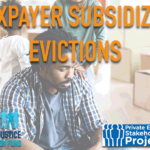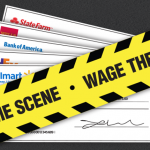In a recent report, Americans for Tax Fairness revealed the true costs to U.S. taxpayers of Walmart’s low prices. The company, and specifically the Walton family members who control it, receive an estimated $7.8 billion per year in tax breaks and taxpayer subsidies.
The extent of corporate tax breaks in this country is a slap in the face to ordinary taxpayers. And the report adds to the mounting evidence of how economic and political power in the United States has become more and more consolidated in the hands of a smaller set of people.
Consider another example from the fast food industry. In the third quarter of 2013, McDonald’s reported $1.5 billion in profits – up five percent from the same quarter the previous year. Simultaneously, the National Employment Law Project released a report showing that taxpayers are paying $1.2 billion per year in public assistance for McDonald’s workers who simply aren’t paid enough to make ends meet without food stamps and other public support.
The number of people holding contingent or low-wage jobs continues to grow while the same individuals, as consumers, increasingly cannot afford to buy the products they make or sell. The low-cost giant Walmart now faces increased competition from dollar stores, one of the few places where shoppers can still afford to fill a basket. Let’s face it – low wages are bad for business and bad for the economy.
But what can be done?
One thing is clear, the time for Band-Aid solutions to poverty and inequality is long gone. For example, we cannot confront corporate power simply by raising the minimum wage. (This may come as a surprise, but it shouldn’t. ) While we need to raise the minimum wage, these policies should not eclipse the opportunities for more systemic solutions to surface.
To reclaim our wealth back from corporate and industry leaders, bold strategies are more necessary than ever. We need innovations that redefine the abusive practices of employers as criminally and morally bankrupt, and to do so, we need to develop corresponding penalties and fines to create disincentives for this kind of behavior.
One such solution is a Bad Business Fee, developed by Jobs With Justice and National People’s Action. A Bad Business Fee could allow a government to levy significant fines on a company that is paying excessively low wages and relying on taxpayers to foot the bill. Companies would be incentivized to work with and respond to their employees requests for fair wages and adequate benefits directly. Otherwise they would pay for parallel social services through a fee that workers and community members have input over. In other words, a bad actor in our economy is held accountable to either provide a good job or supply income or subsidies for existing and unemployed workers.
When workers are paid better, our economy thrives. When workers have a voice in the process to determine wages and conditions, our democracy thrives. Expanding workers’ ability to negotiate – either directly with their employers or through a Bad Business Fee – gets us closer to wrestling some control back from the corporate 1% and on the path toward healing our ailing economy.







